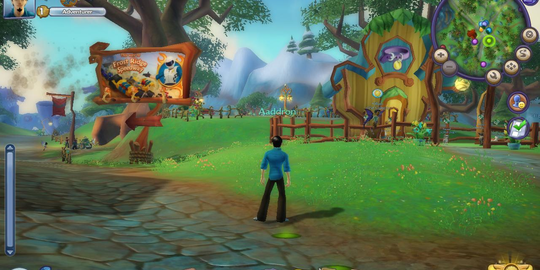
The gaming universe is ever-evolving, with new titles and platforms emerging at an astonishing pace. However, amidst the razzle-dazzle of high-definition graphics and complex gameplay, there's a yearning for simpler times—a time when kid-friendly MMOs like Club Penguin and ToonTown were the go-to sanctuaries for young gamers to connect, create, and just be kids. As the gaming community continues to bask in the glory of throwback trends and retro revivals, we delve into why it might just be the perfect moment to breathe new life into these cherished online worlds.
The Golden Age of Kid-Friendly MMOs
Once upon a time, before the battle royales and sandbox giants took over the playground, there existed a realm where avatars waddled around ice-covered landscapes and battled business-minded bots. These were the worlds of Club Penguin, ToonTown, and other MMOs designed with the younger audience in mind. The allure wasn't just in the gameplay; it was the community and the sense of belonging these games fostered. They were digital utopias where creativity flowed and friendships flourished, unhindered by the complexities of more mature gaming titles. These MMOs were more than just games; they were social hubs and virtual theme parks rolled into one.
Changing Tides in the Gaming Landscape

But as the gaming industry's gears shifted, so did the focus of its audience. Social media platforms emerged as new gathering spaces, while mobile gaming and consoles started to offer more sophisticated and diverse experiences. The simple charm of kid-friendly MMOs lost its sheen against the backdrop of technological advancements and shifting player preferences. As the industry marched forward, these once-popular online worlds faded into the background, with many ultimately shuttering their virtual doors.
The Case for a Renaissance
Yet, there exists a tangible nostalgia for these early virtual playgrounds, and a potential vacuum in the market for games that emphasize creativity and community over competition. The gaming community's appetite for remakes and retro experiences is evidence enough that looking back can be as profitable and exciting as pushing forward. The resurgence of these MMOs could provide a fresh yet familiar landscape for a new generation of gamers while rekindling the childhood wonder of those who grew up with them.
- Social Interaction: These platforms provided a safe space for kids to learn the ropes of online communication.
- Creative Expression: Customizing avatars, igloos, and inventing games within games were all part of the creative draw.
- Education Through Play: Many of these games introduced elements of strategy, economics, and even typing skills woven seamlessly into the fun.
Modernizing the MMO Experience for Today's Youth

The revival of kid-friendly MMOs need not be a carbon copy of their predecessors. Instead, they can evolve, embracing the advancements in technology to enhance the user experience. Imagining a Club Penguin with augmented reality features or a ToonTown with enhanced interactive storytelling isn't far-fetched. Incorporating educational elements in line with today's curriculums could add value for parents, too. The key to a successful revival lies in retaining the core values of community and creativity while innovating to meet contemporary expectations.
Conclusion: The Timeless Appeal of Kid-Friendly MMOs
As we continue to witness the cyclical nature of trends, the potential for kid-friendly MMOs to make a comeback is significant. With the right blend of nostalgia and newness, these games could offer the gaming industry a chance to reconnect with its younger audience and provide a creative outlet that feels both timeless and timely. The enduring legacy of Club Penguin, ToonTown, and their ilk suggests that the magic of these virtual worlds is far from extinguished. Perhaps it's time to re-ignite the flame and welcome a new era of kid-friendly MMOs for the digital natives of today and the sentimental gamers of yesterday.